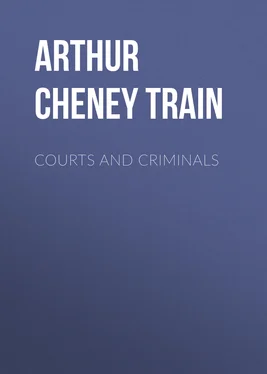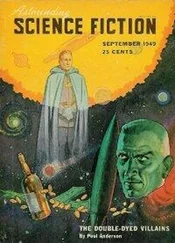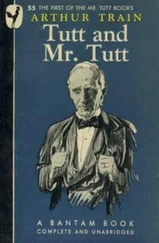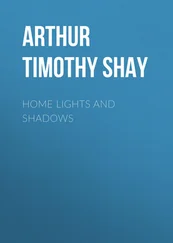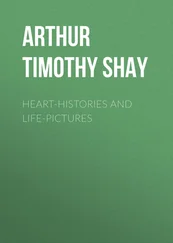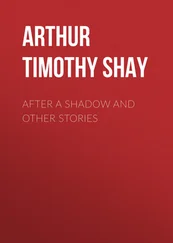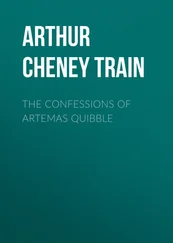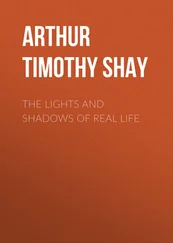Arthur Train - Courts and Criminals
Здесь есть возможность читать онлайн «Arthur Train - Courts and Criminals» — ознакомительный отрывок электронной книги совершенно бесплатно, а после прочтения отрывка купить полную версию. В некоторых случаях можно слушать аудио, скачать через торрент в формате fb2 и присутствует краткое содержание. Жанр: foreign_antique, Юриспруденция, Юриспруденция, на английском языке. Описание произведения, (предисловие) а так же отзывы посетителей доступны на портале библиотеки ЛибКат.
- Название:Courts and Criminals
- Автор:
- Жанр:
- Год:неизвестен
- ISBN:нет данных
- Рейтинг книги:4 / 5. Голосов: 1
-
Избранное:Добавить в избранное
- Отзывы:
-
Ваша оценка:
- 80
- 1
- 2
- 3
- 4
- 5
Courts and Criminals: краткое содержание, описание и аннотация
Предлагаем к чтению аннотацию, описание, краткое содержание или предисловие (зависит от того, что написал сам автор книги «Courts and Criminals»). Если вы не нашли необходимую информацию о книге — напишите в комментариях, мы постараемся отыскать её.
Courts and Criminals — читать онлайн ознакомительный отрывок
Ниже представлен текст книги, разбитый по страницам. Система сохранения места последней прочитанной страницы, позволяет с удобством читать онлайн бесплатно книгу «Courts and Criminals», без необходимости каждый раз заново искать на чём Вы остановились. Поставьте закладку, и сможете в любой момент перейти на страницу, на которой закончили чтение.
Интервал:
Закладка:
In the more important cases the accused is usually put through some sort of an inquisitorial process by the captain at the station-house. If he is not very successful at getting anything out of the prisoner the latter is turned over to the sergeant and a couple of officers who can use methods of a more urgent character. If the prisoner is arrested by headquarters detectives, various efficient devices to compel him to "give up what he knows" may be used—such as depriving him of food and sleep, placing him in a cell with a "stool pigeon" who will try to worm a confession out of him, and the usual moral suasion of a heart-to-heart talk in the back room with the inspector.
This is the darker side of the picture of practical government. It is needless to say that the police do not always suggest the various safeguards and privileges which the law accords to defendants thus arrested, but the writer is free to confess that, save in exceptional cases, he believes the rigors of the so-called third degree to be greatly exaggerated. Frequently in dealing with rough men rough methods are used, but considering the multitude of offenders, and the thousands of police officers, none of whom have been trained in a school of gentleness, it is surprising that severer treatment is not generally met with on the part of those who run afoul of the criminal law. The ordinary "cop" tries to do his duty as effectively as he can. With the average citizen gruffness and roughness go a long way in the assertion of authority. In the task of policing a big city, the rights of the individual must indubitably suffer to a certain extent if the rights of the multitude are to be properly protected. We can make too much of small injustices and petty incivilities. Police business is not gentle business. The officers are trying to prevent you and me from being knocked on the head some dark night or from being chloroformed in our beds. Ten thousand men are trying to do a thirty-thousand-man job. The struggle to keep the peace and put down crime is a hard one anywhere. It requires a strong arm that cannot show too punctilious a regard for theoretical rights when prompt decisions have to be made and equally prompt action taken. The thieves and gun men have got to be driven out. Suspicious characters have got to be locked up. Somehow or other a record must be kept of professional criminals and persons likely to be active in law-breaking. These are necessities in every civilized country. They are necessities here. Society employs the same methods of self-protection the world over. No one presumes a person charged with crime to be innocent, either in Delhi, Pekin, Moscow, or New York. Under proper circumstances we believe him guilty. When he comes to be tried the jury consider the evidence, and if they are reasonably sure he is guilty they convict him. The doctrine of reasonable doubt is almost as much of a fiction as that of the presumption of innocence. From the time a man is arrested until arraignment he is quizzed with a view to inducing him to admit his offence or give some evidence that may help convict him. Logically, why should not a person charged with a crime be obliged to give what explanation he can of the affair? Why should he have the privilege of silence? Doesn't he owe a duty to the public the same as any other witness? If he is innocent he has nothing to fear; if he is guilty—away with him! The French have no false ideas about such things and at the same time they have a high regard for liberty. We merely cheat ourselves into thinking that our liberty is something different from French liberty because we have a lot of laws upon our statute books that are there only to be disregarded and would have to be repealed instantly if enforced.
Take, for instance, the celebrated provision of the penal laws that the failure of an accused to testify in his own behalf shall not be taken against him. Such a doctrine flies in the face of human nature. If a man sits silent when witnesses under oath accuse him of a crime it is an inevitable inference that he has nothing to say—that no explanation of his would explain. The records show that the vast majority of accused persons who do not avail themselves of the opportunity to testify are convicted. Thus, the law which permits a defendant to testify in reality compels him to testify, and a much-invoked safeguard of liberty turns out to be a privilege in name only. In France or America alike a man accused of crime sooner or later has to tell what he knows—or take his medicine. It makes little difference whether he does so under the legalized interrogation of a "juge d'instruction" in Paris or under the quasi-voluntary examination of an assistant district attorney or police inspector in New York. It is six of one and half a dozen of the other if at his trial in France he remains mute under examination or in America refrains from availing himself of the privilege of testifying in his own behalf.
Thus, we are reluctantly forced to the conclusion that all human institutions have their limitations, and that, however theoretically perfect a government of laws may be, it must be administered by men whose chief regard will not be the idealization of a theory of liberty so much as an immediate solution of some concrete problem.
Not that the matter, after all, is particularly important to most of us, but laws which exist only to be broken create a disrespect and disregard for law which may ultimately be dangerous. It would be perfectly simple for the legislature to say that a citizen might be arrested under circumstances tending to create a reasonable suspicion, even if he had not committed a crime, and it would be quite easy to pass a statute providing that the commissioner of police might "mug" and measure all criminals immediately after conviction. As it is, the prison authorities won't let him, so he has to do it while he has the opportunity.
It must be admitted that this is rather hard on the innocent, but they now have to suffer with the guilty for the sins of an indolent and uninterested legislature. Moreover, if such a right of arrest were proposed, some wiseacre or politician would probably rise up and denounce the suggestion as the first step in the direction of a military dictatorship. Thus, we shall undoubtedly fare happily on in the blissful belief that our personal liberties are the subject of the most solicitous and zealous care on the part of the authorities, guaranteed to us under a government which is not of men but of laws, until one of us happens to be arrested (by mistake, of course) and learns by sad experience the practical methods of the police in dealing with criminals and the agreeable but deceptive character of the pleasant fiction of the presumption of innocence.
CHAPTER II. Preparing a Criminal Case for Trial
When the prosecuting attorney in a great criminal trial arises to open the case to the impanelled jury, very few, if any, of them have the slightest conception of the enormous expenditure of time, thought and labor which has gone into the preparation of the case and made possible his brief and easily delivered speech. For in this opening address of his there must be no flaw, since a single misstated or overstated fact may prejudice the jury against him and result in his defeat. Upon it also depends the jury's first impression of the case and of the prosecutor himself—no inconsiderable factor in the result. In a trial of importance its careful construction with due regard to what facts shall be omitted (in order to enhance their dramatic effect when ultimately proven) may well occupy the district attorney every evening for a week. But if the speech itself has involved study and travail, it is as nothing compared with the amount required by that most important feature of every criminal case—the selection of the jury.
For a month before the trial, or whenever it may be that the jury has been drawn, every member upon the panel has been subjected to an unseen scrutiny. The prosecutor, through his own or through hired sleuths, has examined into the family history, the business standing and methods, the financial responsibility, the political and social affiliations, and the personal habits and "past performances" of each and every talesman. When at the beginning of the trial they, one by one, take the witness-chair (on what is called the voir dire) to subject themselves to an examination by both sides as to their fitness to serve as jurors in the case, the district attorney probably has close fit hand a rather detailed account of each, and perchance has great difficulty in restraining a smile. When some prospective juror, in his eagerness either to serve or to escape, deliberately equivocates in answer to an important question as to his personal history.
Читать дальшеИнтервал:
Закладка:
Похожие книги на «Courts and Criminals»
Представляем Вашему вниманию похожие книги на «Courts and Criminals» списком для выбора. Мы отобрали схожую по названию и смыслу литературу в надежде предоставить читателям больше вариантов отыскать новые, интересные, ещё непрочитанные произведения.
Обсуждение, отзывы о книге «Courts and Criminals» и просто собственные мнения читателей. Оставьте ваши комментарии, напишите, что Вы думаете о произведении, его смысле или главных героях. Укажите что конкретно понравилось, а что нет, и почему Вы так считаете.
